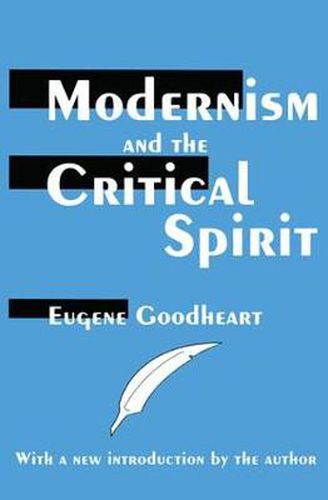Readings Newsletter
Become a Readings Member to make your shopping experience even easier.
Sign in or sign up for free!
You’re not far away from qualifying for FREE standard shipping within Australia
You’ve qualified for FREE standard shipping within Australia
The cart is loading…






Complaints about the decline of critical standards in literature and culture in general have been voiced for much of the twentieth century. These have extended from F.R. Leavis’s laments for a lost center of intelligence and urbane spirit, to current opposition to the predominance of radical critical theory in contemporary literature departments. Humanist criticism, which has as its object the quality of life as well as works of art, may well lack authority in the contemporary world. Even amid the disruptions of the industrial revolution, nineteenth-century humanists such as Matthew Arnold, John Ruskin, and Thomas Carlyle could assume a positive order of value and shared habits of imaginative perception and understanding between writers and readers. Eugene Goodheart argues that, by contrast, contemporary criticism is infused with the skepticism of modernist aesthetics. It has willfully rejected the very idea of moral authority.
Goodheart starts from the premise that questions about the moral authority of literature and criticism often turn upon a prior question of what happens when the sacred disappears or is subjected to the profane. He focuses on contending spiritual views, in particular the dialectic between the Protestant-inspired, largely English humanist tradition of Carlyle, Ruskin, Arnold, and D.H. Lawrence and the decay of Catholicism represented by James Joyce and T.S. Eliot. Goodheart argues that literary modernism, in distancing itself from natural and social vitality, tends to render suspect all privileged positions. It thereby undermines the critical act, which assumes the priority of a particular set of values. Goodheart makes his case by analyzing the work of a variety of novelists, poets, and critics, nineteenth century and contemporary. He blends literary theory and practical criticism.
$9.00 standard shipping within Australia
FREE standard shipping within Australia for orders over $100.00
Express & International shipping calculated at checkout
Complaints about the decline of critical standards in literature and culture in general have been voiced for much of the twentieth century. These have extended from F.R. Leavis’s laments for a lost center of intelligence and urbane spirit, to current opposition to the predominance of radical critical theory in contemporary literature departments. Humanist criticism, which has as its object the quality of life as well as works of art, may well lack authority in the contemporary world. Even amid the disruptions of the industrial revolution, nineteenth-century humanists such as Matthew Arnold, John Ruskin, and Thomas Carlyle could assume a positive order of value and shared habits of imaginative perception and understanding between writers and readers. Eugene Goodheart argues that, by contrast, contemporary criticism is infused with the skepticism of modernist aesthetics. It has willfully rejected the very idea of moral authority.
Goodheart starts from the premise that questions about the moral authority of literature and criticism often turn upon a prior question of what happens when the sacred disappears or is subjected to the profane. He focuses on contending spiritual views, in particular the dialectic between the Protestant-inspired, largely English humanist tradition of Carlyle, Ruskin, Arnold, and D.H. Lawrence and the decay of Catholicism represented by James Joyce and T.S. Eliot. Goodheart argues that literary modernism, in distancing itself from natural and social vitality, tends to render suspect all privileged positions. It thereby undermines the critical act, which assumes the priority of a particular set of values. Goodheart makes his case by analyzing the work of a variety of novelists, poets, and critics, nineteenth century and contemporary. He blends literary theory and practical criticism.